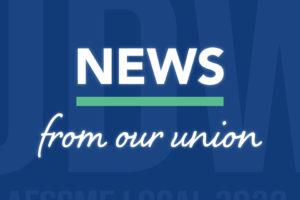
Proud to be an LGBT caregiver
By R. Andrew Daniel, IHSS provider, San Diego County During LGBT Pride Month, I like to take a look back


By R. Andrew Daniel, IHSS provider, San Diego County During LGBT Pride Month, I like to take a look back
UDW Executive Director Doug Moore released the following statement in response to the massacre of 49 people at an LGBTQ